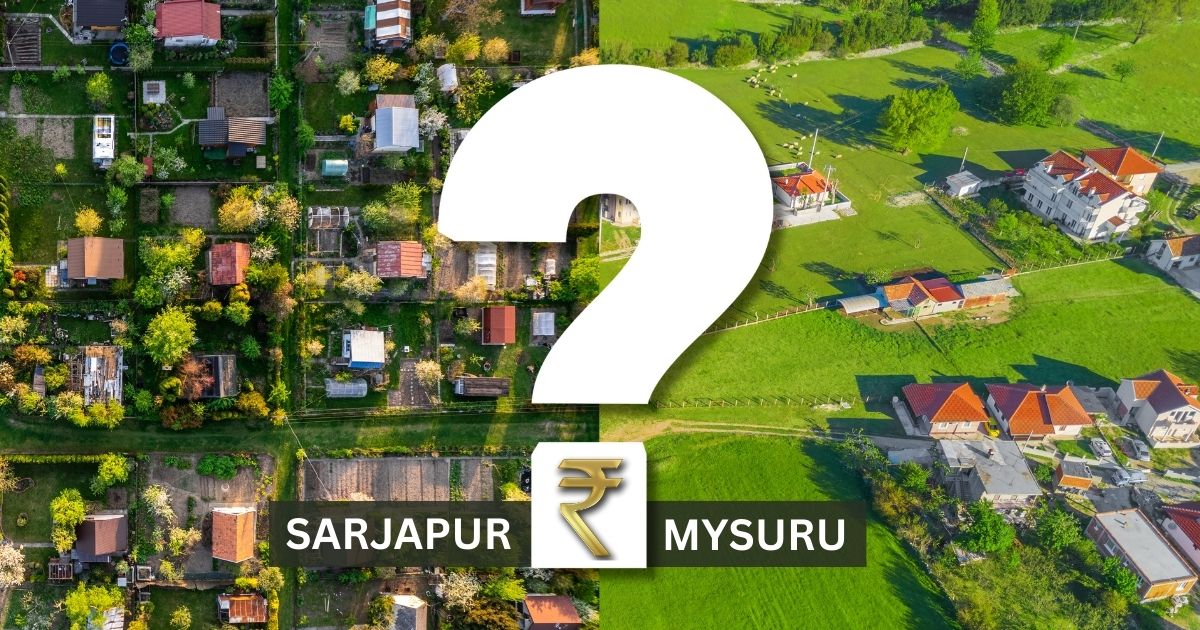Top 4 Crucial Facts About Sale Deed You Must Know Before Buying Property
Learn everything about a Sale Deed—what it is, why it’s important, key components, and the difference between a Sale Deed and a Sale Agreement. A must-read before buying any property.
When you buy a property—be it an apartment, a villa, or a plot—the excitement is real. But beneath the surface of site visits and brochure promises lies the true backbone of the transaction: the Sale Deed. If you’re planning to become a homeowner or a real estate investor, understanding what a sale deed is and why it matters is essential.
Let’s break it down.
What is a Sale Deed?
It is a legal document that officially transfers the ownership of a property from the seller to the buyer. It’s the final, most crucial step in the property buying process. Without a sale deed, your purchase has no legal standing—even if you’ve paid the full amount.
Think of it as the “final stamp” that proves the property is now yours.
Why is a Sale Deed Important?
- Legal Proof of Ownership:
The sale deed is the ultimate evidence that you legally own the property. It protects you in case of future disputes. - Transfer of Rights:
It confirms that the seller has transferred all rights, title, and interest in the property to the buyer. - Clarity on Terms and Conditions:
It records the agreed-upon price, payment details, possession date, and any conditions set during the transaction. - Mandatory for Registration:
The sale deed must be registered at the local sub-registrar’s office, as per the Registration Act of 1908. Without registration, the transaction is not considered valid in the eyes of the law.
What Does a Sale Deed Contain?
A well-drafted sale deed includes:
- Details of the Buyer and Seller: Full names, addresses, and ID proofs.
- Description of the Property: Area, location, layout, survey number, and boundaries.
- Agreement Terms: The sale price, advance amount (if any), payment schedule, and method of payment.
- Possession Date: When the buyer gets physical possession.
- Encumbrance Status: A declaration that the property is free from legal dues or loans.
- Indemnity Clause: Protects the buyer if any legal issues arise later due to the seller’s fault.
- Witness Signatures: At least two witnesses are required to validate the document.
How is a Sale Deed Different from a Sale Agreement?
Many buyers confuse the sale agreement with the sale deed, but they serve different purposes.
- It is a promise that the property will be sold at a future date, under specific terms.
- It is the actual execution of that promise—the point at which ownership legally changes hands.
In short:
Sale Agreement = Commitment
Sale Deed = Completion
Difference Between Sale Agreement and Sale Deed
| Sale Agreement | Sale Deed |
| Preliminary document | Final document of ownership transfer |
| Indicates intent to sell | Conveys actual ownership |
| Not legally enforceable for possession | Legally binding |
Things to Check Before Signing a Sale Deed
- Verify Title and Ownership: Ensure the seller is the rightful owner and the title is clear.
- Check for Encumbrances: Confirm there are no loans or legal disputes tied to the property.
- Cross-verify Property Details: The property description must match official records and your site visit.
- Ensure Stamp Duty is Paid: Sale deeds must be executed on non-judicial stamp paper of appropriate value.
- Register the Sale Deed: Without registration, the deed isn’t valid.
It’s wise to have a legal expert or property lawyer review the deed before signing. This small step can save you from major complications down the line.
Final Thoughts
A sale deed is more than just paperwork—it’s the legal foundation of your property ownership. Whether you’re buying your first home or investing in real estate, never treat the sale deed as a formality. Understand it, verify it, and ensure it’s done right.
Your dream home deserves more than just beautiful interiors—it deserves rock-solid legal backing. Connect with Ceyone for more..
FAQs
Q1. Is a sale deed mandatory for property transactions?
Yes, it’s a legal requirement to establish ownership.
Q2. Can a sale deed be executed without registration?
No, unregistered deeds have no legal standing.
Q3. Who drafts the sale deed – buyer or seller?
Usually the buyer’s lawyer, but both parties may contribute.
Q4. What is the cost of registering a sale deed?
Varies by location – includes stamp duty and registration fees.
Q5. Can a sale deed be cancelled?
Yes, via mutual agreement or court order.
Q6. How to get a copy of the registered sale deed?
You can apply at the Sub-Registrar’s office or online (if available in your state).
Q7. Is it necessary to hire a lawyer?
Highly recommended for legal accuracy and protection.














Post Comment